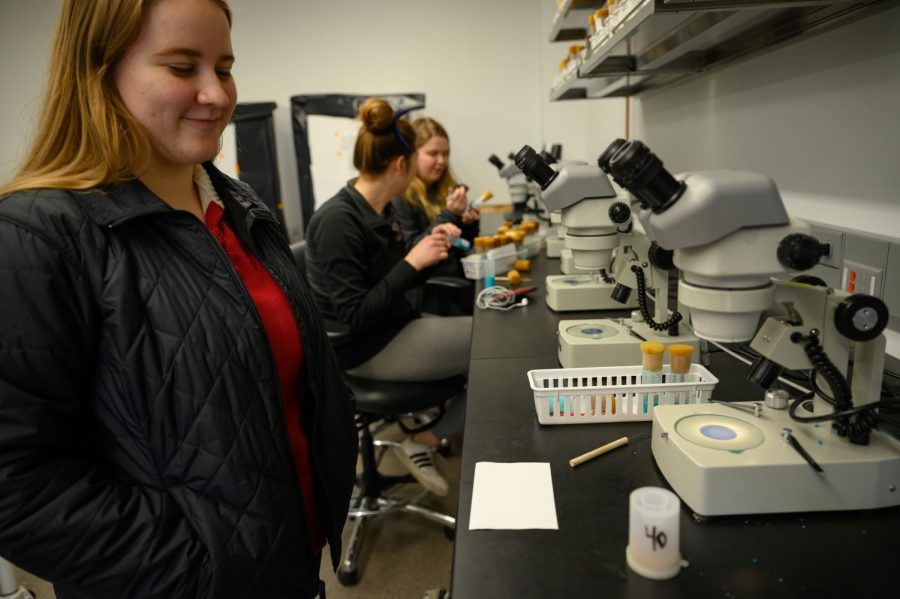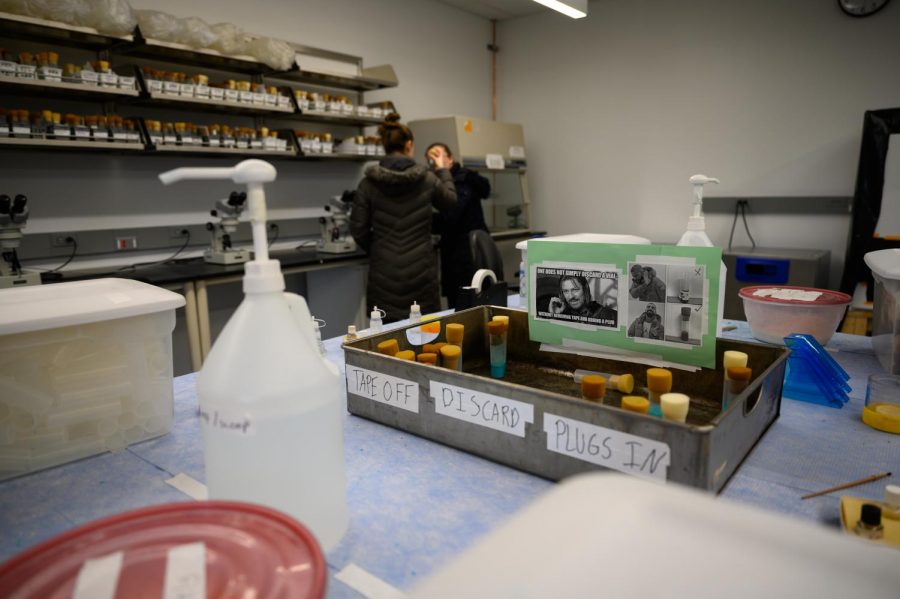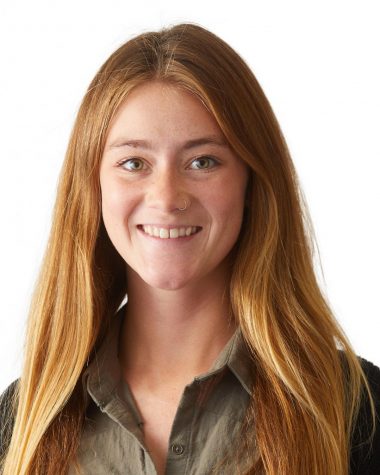Photo Series: Fruit fly lab
Photo taken by Carly Rundle-Brochert.
Fruit fly lab.
March 17, 2020
Biology professor, Lee Baines, has taught at the University of Wisconsin-La Crosse for 10 years. Each year a lab is conducted studying fruit fly gene mutations.
“[Fruit flies] were one of the first organisms geneticists looked at, so we know tons about them,” said Baines. “The reason we chose them in the 1920s was that they reproduce quickly; they can go through the whole life cycle in a month.” The fruit fly’s lifespan timeline allows students to study multiple generations of fruit fly families.
“The flies work on their own schedule and sometimes you have to be ready to deal with it at weird hours,” said Baines. For this reason, the fruit fly lab is open to students anytime of day in Prairie Springs Science Center with a swipe of their UWL student ID. Now because of COVID-19, students will not have access to this building.
Students are given two groups of fruit fly larva, each with a different mutation strain. The mutations include variations in eye color, fly color, wings or lack thereof. They crossbreed the two groups to get the F1 generation, then inbreed the F1 to get the F2, grandchildren generation.
UWL sophomore Nora Harvel said, “Once those flies hatch you put them under the microscope and observe the different distinctions each fly has, whether they are male or female and then cross the flies and do the same process again. You have to identify the mutations and sex for at most 500 fruit flies.”
Students characterize, count and examine mutation ratios to better understand the flies’ genetics. Baines said this lab teaches students skills in scientific analysis, writing and managing their own time.
“You only have eight hours to get the flies out after they hatch because they cannot mate. You always have to kill them if they hatch overnight when you check on them in the morning because you do not know how long they have been in there,” said Harvel.
Emily Gruenling is a pre-med biology major currently in the fruit fly lab. Gruenling walked The Racquet Press through the steps of etherizing her group of flies to observe them under the microscope.
Other departments within the Prairie Springs Science Center have complained about fugitive fruit flies contaminating their labs. “We’re supposed to kill them if they escape, but I feel bad about it,” said Gruenling.
“The lab itself isn’t hard but having to go in multiple times throughout the day, in the morning and at night, makes it a little bit difficult,” said Harvel. “Other than that the class is pretty laid-back and the professor understands that we have other obligations.”
This lab has been suspended as of now due to classes switching online in response to COVID-19.








